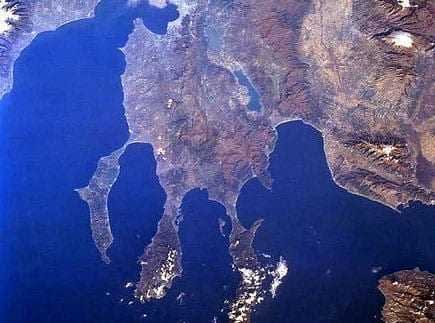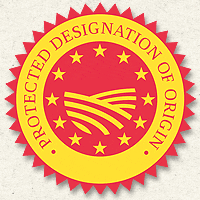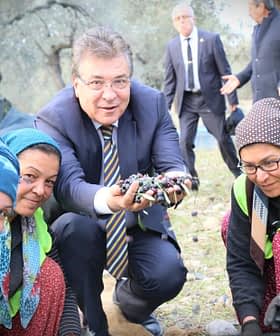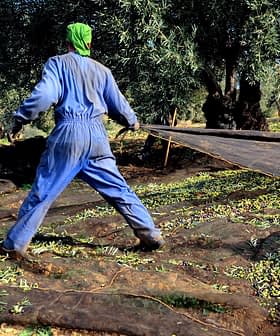
The three “legs” of the Chalkidiki peninsula extend into the northern Aegean Sea.
Two more regions of Greece, Messinia and Chalkidiki, have submitted applications to the European Commission for a ‘Protected Designation of Origin’ (PDO) label for their extra virgin olive oil.
Messinia in southern Greece, aims at putting all the olive oil it produces under the PDO umbrella with the ‘Kalamata’ tag, while Chalkidiki, near Salonika, wants to secure a special type of oil produced when the olives are still green and not fully ripe called ‘Agoureleo Chalkidikis.’
A PDO is a designation which acknowledges that an agricultural product or food originating from a specific area or location bears characteristics almost exclusively attributed to the place of its origin, and more specifically to the environmental conditions, the microclimate and the human factors. Another preposition is that the product is produced or made within the geographical limits of the area. Both regions had to include in their applications the special characteristics of their olive oil, such as color, aroma, taste, acidity, oleic acid, the olive drupes variety and also the processing methods in great detail.
Both regions had to include in their applications the special characteristics of their olive oil, such as color, aroma, taste, acidity, oleic acid, the olive drupes variety and also the processing methods in great detail.
A PDO process is not an easy task to complete; a variety of facts and figures must be collected to prove that the product under examination differentiates from other similar products from other areas and characterizes the place it originates from. Then the application is published in the Official Journal of the European Union and, if no objections occur within six months, the PDO name tag is registered for exclusive usage.
The aim is to protect and promote high quality products and at the same time signal that these products are worth consumers’ money. So far, according to the Ministry of Agriculture, 16 areas of Greece have been awarded a PDO label for their olive oil.








